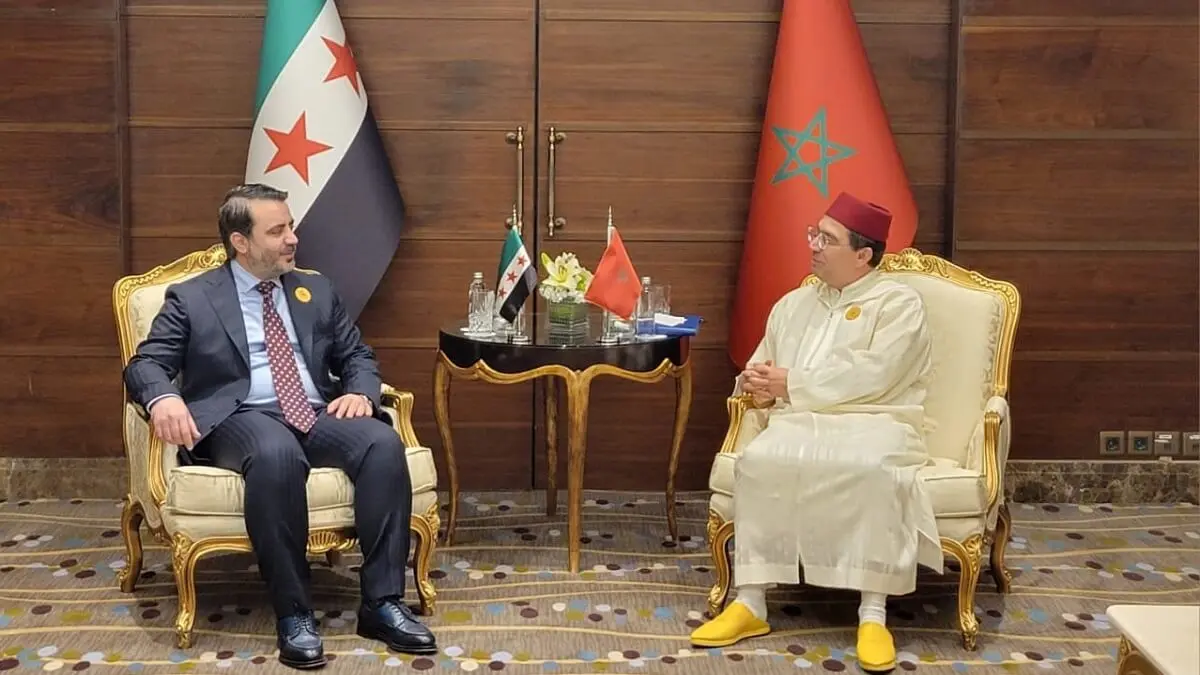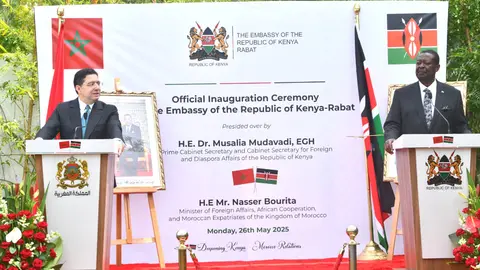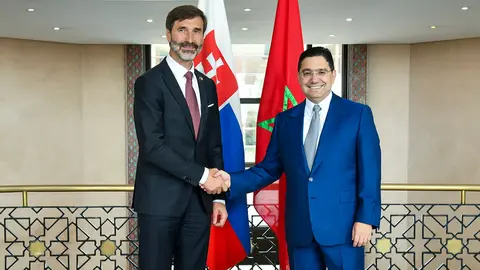Syria distances itself from the Polisario Front and moves closer to Morocco

Syria has decided to close the Polisario Front office in Damascus, the Syrian capital, which is a new setback for the Sahrawi independence entity and further support for the territorial integrity of Morocco.
This diplomatic move comes during a visit by a Moroccan technical delegation to the Syrian capital with the aim of reopening the Embassy of the Kingdom of Morocco in Damascus.
A joint Moroccan-Syrian delegation confirmed the closure of the Polisario Front delegation in Syrian territory, as reported by various Moroccan media outlets. During this diplomatic meeting, various Syrian authorities reiterated Syria's respect for Moroccan sovereignty and territorial integrity, rejecting any support for independence movements such as those defended by the Polisario Front.
The decision to close the Polisario Front office in Damascus demonstrates the Syrian government's intention to strengthen ties with the Moroccan kingdom and promote progress and stability in such hot spots as North Africa and the Middle East. This determination has been made clear by the actions of the new Syrian executive, currently led by Ahmed Al-Sharaa following the fall of Bashar Al-Assad's regime.
This concrete gesture by Syria consolidates the mutual commitment between the two countries to the principle of territorial integrity and marks a milestone on the road to rebuilding a solid bilateral relationship.

Strong international support
Territorial integrity is a matter of vital importance to Morocco. The Moroccan kingdom attaches paramount importance to the territory of Western Sahara, which it considers part of its southern provinces. Meanwhile, the Polisario Front is seeking territorial independence, which seriously affects Moroccan national sovereignty, as the North African country has stated for years.
Morocco has already obtained the support of more than 100 countries for its Autonomy Plan for Western Sahara. This initiative proposes broad autonomy for Western Sahara under Moroccan sovereignty, respecting the resolutions of the United Nations (UN), granting the Sahrawi authorities a high degree of self-government in various areas and leaving defence and foreign policy relating to the territory in the hands of the Moroccan State.
The main objective of the Moroccan kingdom is to develop the area to its full potential and give it greater importance within the national state structure. Several major countries, such as the United States, France, the United Arab Emirates, Germany and Spain, have officially recognised the Moroccan proposal as the most serious and credible solution to the Sahrawi dispute, which has been ongoing for almost five decades since the end of Spanish colonial rule.
Meanwhile, the Polisario Front's proposal for independence has less international support, including that of Algeria, Morocco's great political enemy in the Maghreb region.
Loss of support for the Polisario Front
In recent times, the Polisario Front has lost important support that it had enjoyed for decades in backing its aspirations for independence.
The Polisario Front represents the self-proclaimed Sahrawi Arab Democratic Republic (SADR), which has little official recognition on the international stage, and both organisations are calling for a referendum on independence for the Sahrawi people, which has little international support and is difficult to implement due to issues such as the establishment of an electoral register, according to various analysts.
Morocco's proposal has greater global support as it is understood that it would be much more beneficial for the development and progress of Western Sahara than other proposals that are unclear and have little chance of success in view of the arguments and opinions presented.
It should even be noted that some countries that historically supported the Polisario Front and the SADR have been withdrawing their political cover for these entities with political moves towards Morocco, as has been the case in recent times with Kenya, with the official visit of the Kenyan Prime Minister and Minister of Foreign Affairs, Musalia Mudavadi, and the opening of the African country's embassy in Moroccan territory, the suspension of recognition of the SADR by Ecuador and the announcement of the opening of an Ecuadorian embassy in the North African country, or Syria itself, with the closure of the Polisario Front office in Damascus and the intention to reopen the Moroccan embassy on Syrian territory.










